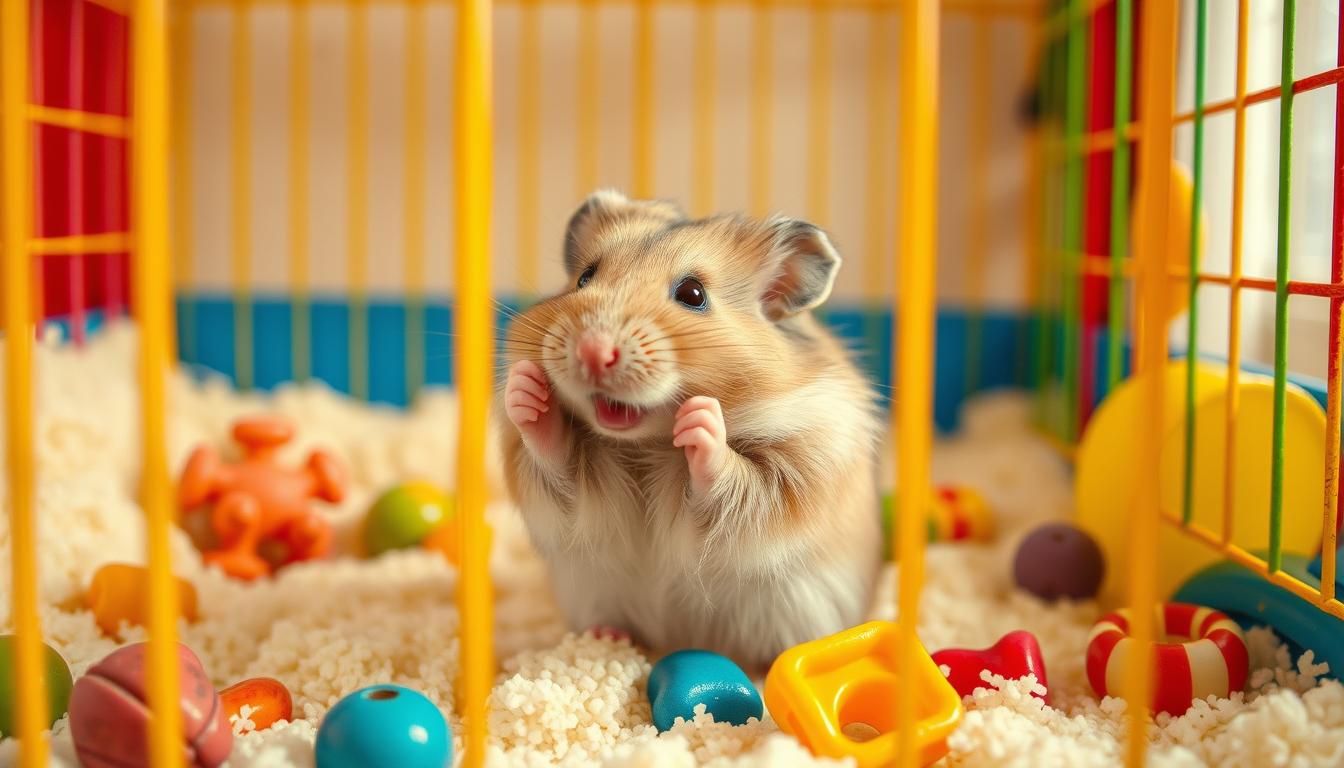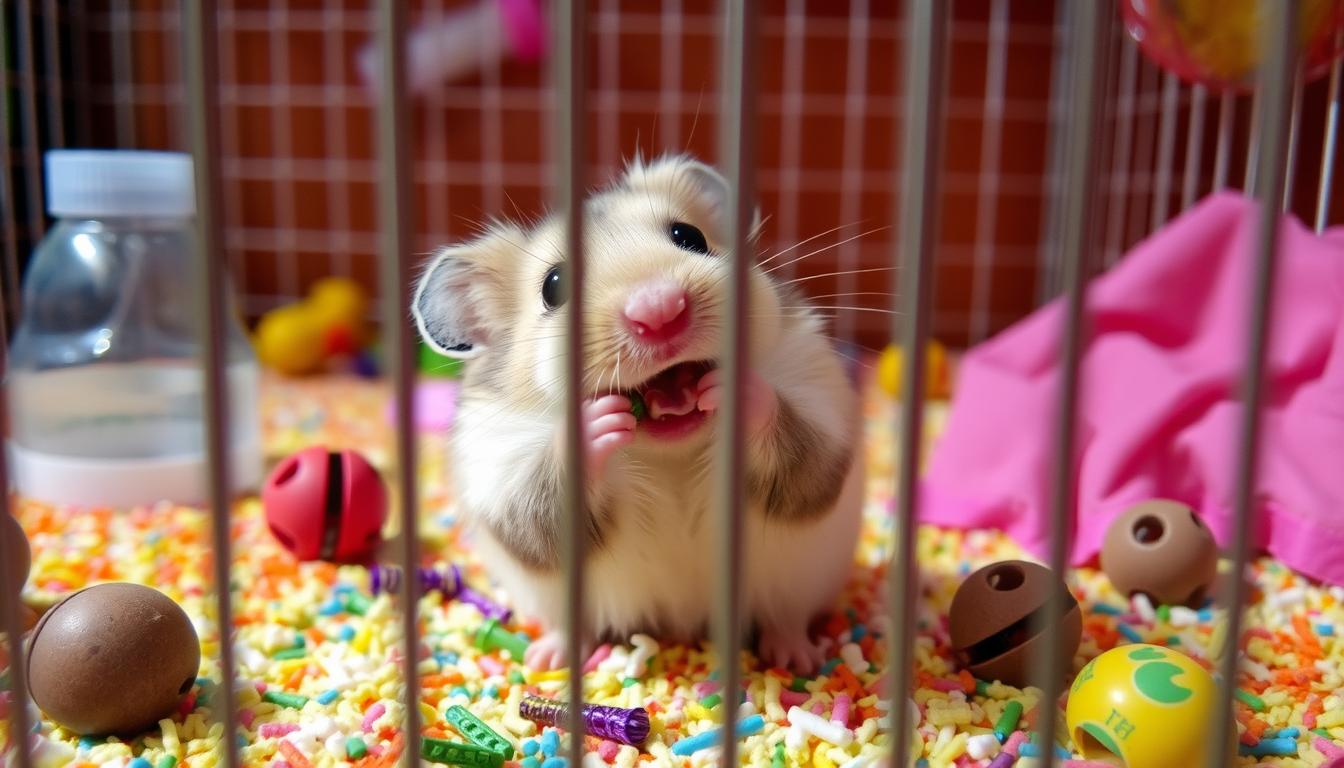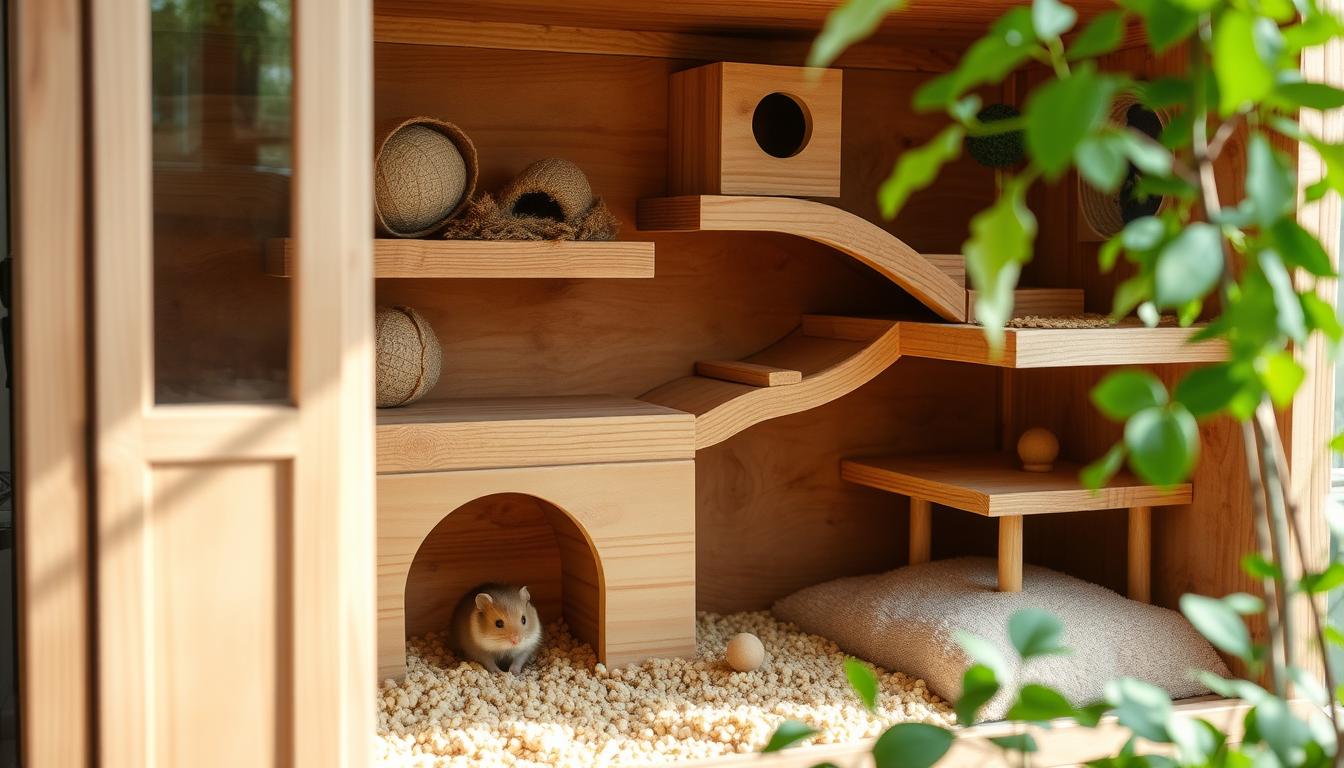Have you seen your hamster chewing on the cage bars a lot? It’s a common sight, but it can worry you. Knowing why they do this is key to keeping them happy and healthy.
Key Takeaways
- Hamsters chew because their teeth grow non-stop.
- They chew when they’re bored or need something to do.
- Teething and dental problems can make them chew more.
- Offering safe toys and chewables can help.
- Keep an eye on their teeth and fix any problems fast.
But what if your hamster’s chewing is too much? Is there something more going on? Looking into why they chew can help you meet their needs and keep them well.
Common Reasons Behind Hamster Chewing Habits
Hamsters are natural chewers. They often gnaw on their cage, puzzling pet owners. Knowing why they chew can help solve the problem. Boredom and dental health are the main reasons.
Boredom and Lack of Enrichment
Hamsters are active and curious. They need a stimulating environment to be happy. Without enough toys and places to explore, they chew to fight boredom.
Give your hamster lots of toys and change them often. This can stop them from chewing on their cage.
Dental Health and Teething
Hamsters’ teeth grow all the time. They chew to keep their teeth healthy. Without the right chew toys, they chew on their cage.
Make sure your hamster has chew toys and hay. This helps their dental health and stops cage chewing.
Knowing why hamsters chew helps you create a better home for them. This reduces cage chewing and keeps them happy.
why is my hamster chewing on his cage
As a caring pet owner, you might have seen your hamster chewing on the cage bars. This behavior can be confusing. But knowing why they do it can help make their home better and happier.
Hamsters chew on their cages because of their natural instincts and dental needs. Their teeth grow all the time, and chewing keeps them the right size. This is key for their health, as long teeth can cause pain and sickness.
Hamsters also like to explore and play with their surroundings. The cage bars let them do this. If they’re bored or not getting enough rodent care, they might chew more to keep themselves busy.
Knowing why your hamster chews is the first step to fixing the problem. By taking care of their teeth, making their home interesting, and keeping them happy, you can stop this behavior. This will make a better home for your pet.
“Chewing is a natural behavior for hamsters, and it’s important to provide them with appropriate outlets to satisfy this instinct.”
Providing a Chew-Friendly Environment
To keep your hamster happy and healthy, you need to create a chew-friendly space. Offer a range of safe hamster toys and alternatives. This will help meet their chewing needs and stop them from chewing on the cage.
Safe Chewing Toys and Alternatives
To encourage hamster enrichment and meet their chewing needs, try these items:
- Wooden blocks or branches: Choose untreated, natural wood that’s safe for hamsters to chew.
- Hamster-safe cardboard tubes and boxes: Let your hamster shred and burrow through them.
- Chew-proof hamster toys: Get toys made for hamsters that promote natural chewing.
- Timothy hay or grass mats: Offer a soft, fibrous substrate for your hamster to chew on.
Change and add these chew-friendly items often. This keeps your hamster interested and stops boredom. Boredom can lead to too much cage chewing.
| Chew-Friendly Item | Benefits |
|---|---|
| Wooden Blocks | Satisfy natural chewing instincts, promote dental health |
| Cardboard Tubes | Provide a safe, engaging material for burrowing and shredding |
| Chew Toys | Specifically designed to withstand hamster chewing, encourage play |
| Timothy Hay | Offer a fibrous, nutritious alternative for chewing and foraging |
By making a chew-friendly space with safe and fun options, you can stop too much hamster cage chewing. This helps your pet stay happy and healthy.
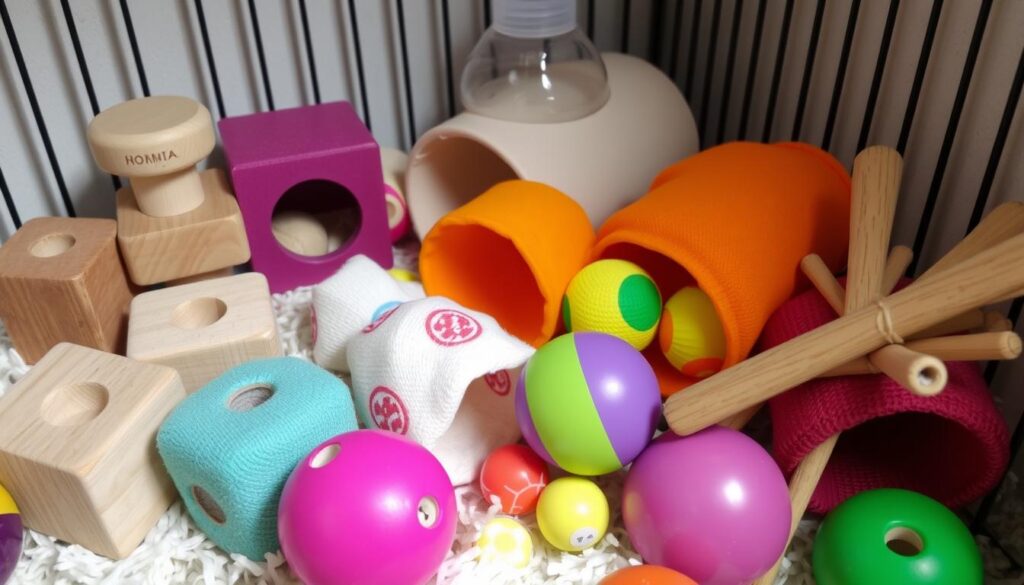
Addressing Excessive Chewing Behavior
As a hamster owner, you might see your pet chewing too much. This is a big concern for their health and your stuff. We’ll look at ways to stop this chewing and keep your hamster safe.
Monitoring Dental Issues
Hamsters chew a lot because of their teeth. These teeth grow all the time. Without the right hamster dental care, their teeth can get too long. This makes them uncomfortable and want to chew more.
Check your hamster’s teeth and gums often. Look for any signs of problems. If you see something wrong, like yellow teeth or swollen gums, get help from a vet who knows about rodent care.
- Watch your hamster’s teeth and gums for any oddities
- Get vet help if you think there’s a dental issue
- Give them chew toys and other things to chew on to keep their teeth healthy
Fixing dental problems can stop your hamster from chewing too much. It’s a big step towards keeping them happy and healthy.
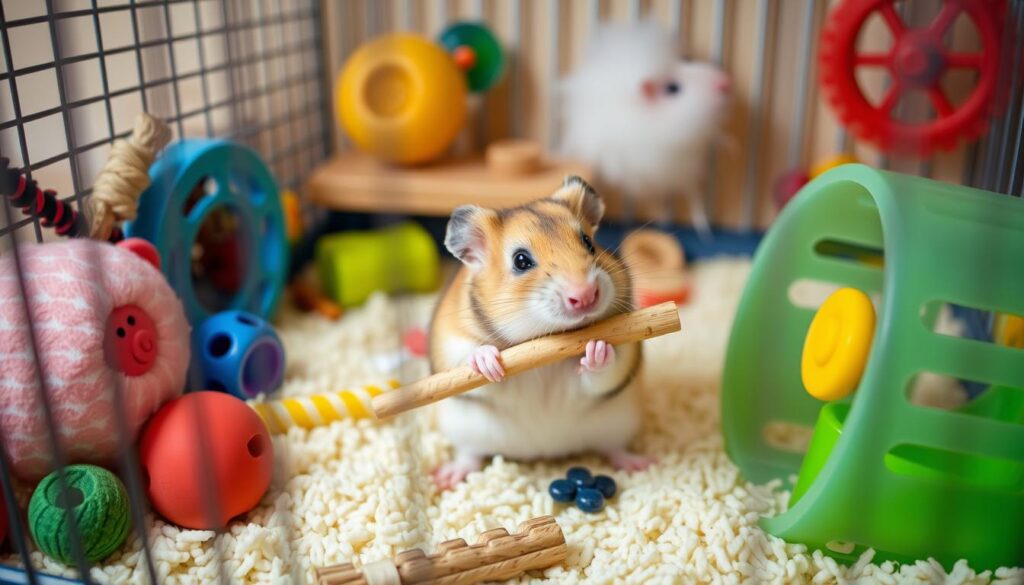
“Proper dental care is essential for a happy and healthy hamster. Addressing excessive chewing behavior starts with understanding and addressing any dental issues.”
Conclusion
Understanding why your hamster chews on its cage is key to their health. This behavior can stem from boredom, lack of toys, dental issues, or instinct.
Creating a safe space with chew toys can solve the problem. It keeps your hamster happy and healthy. Also, watching their dental health and stopping excessive chewing is important.
As a pet owner, you play a big role in your hamster’s life. You can make their environment rich and fulfilling. Knowing why they chew helps you care for them better. This way, you can enjoy a great bond with your furry friend.

